Jonathan Fiscus
An overview on the evaluated video retrieval tasks at TRECVID 2022
Jun 22, 2023



Abstract:The TREC Video Retrieval Evaluation (TRECVID) is a TREC-style video analysis and retrieval evaluation with the goal of promoting progress in research and development of content-based exploitation and retrieval of information from digital video via open, tasks-based evaluation supported by metrology. Over the last twenty-one years this effort has yielded a better understanding of how systems can effectively accomplish such processing and how one can reliably benchmark their performance. TRECVID has been funded by NIST (National Institute of Standards and Technology) and other US government agencies. In addition, many organizations and individuals worldwide contribute significant time and effort. TRECVID 2022 planned for the following six tasks: Ad-hoc video search, Video to text captioning, Disaster scene description and indexing, Activity in extended videos, deep video understanding, and movie summarization. In total, 35 teams from various research organizations worldwide signed up to join the evaluation campaign this year. This paper introduces the tasks, datasets used, evaluation frameworks and metrics, as well as a high-level results overview.
TRECVID 2020: A comprehensive campaign for evaluating video retrieval tasks across multiple application domains
Apr 27, 2021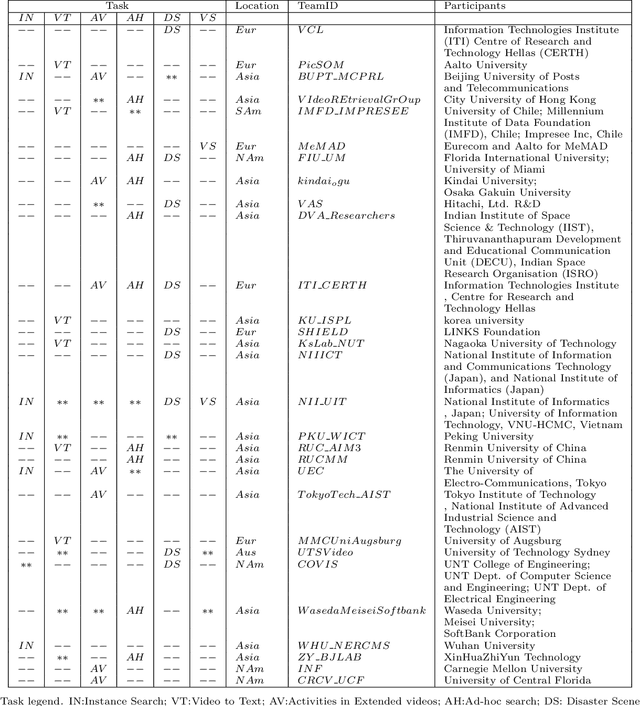
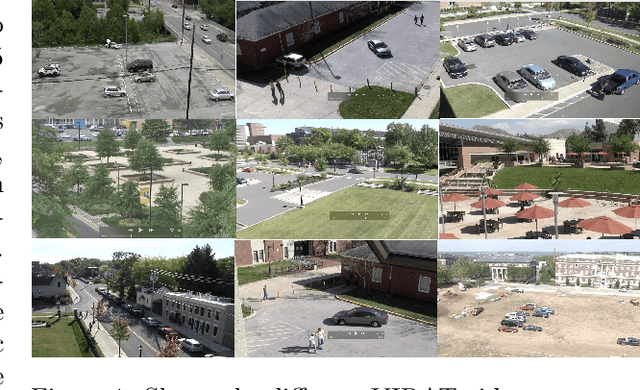
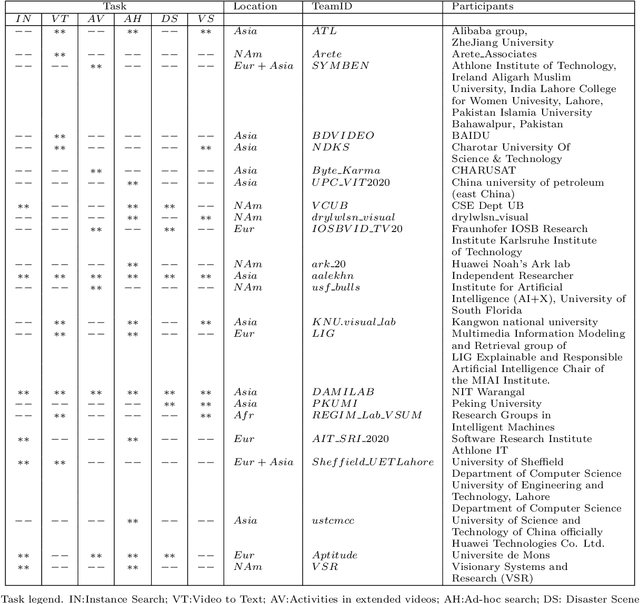
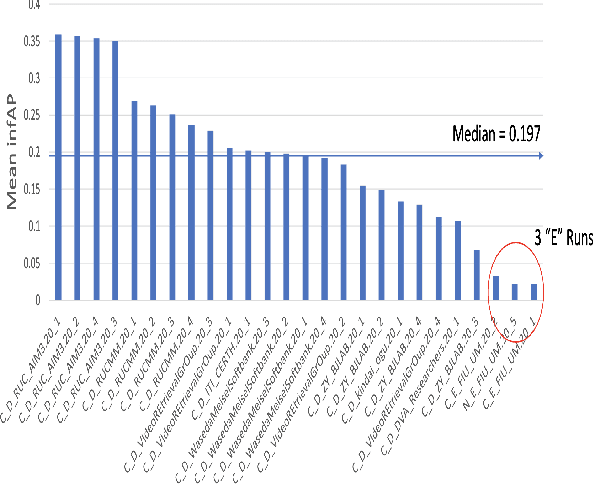
Abstract:The TREC Video Retrieval Evaluation (TRECVID) is a TREC-style video analysis and retrieval evaluation with the goal of promoting progress in research and development of content-based exploitation and retrieval of information from digital video via open, metrics-based evaluation. Over the last twenty years this effort has yielded a better understanding of how systems can effectively accomplish such processing and how one can reliably benchmark their performance. TRECVID has been funded by NIST (National Institute of Standards and Technology) and other US government agencies. In addition, many organizations and individuals worldwide contribute significant time and effort. TRECVID 2020 represented a continuation of four tasks and the addition of two new tasks. In total, 29 teams from various research organizations worldwide completed one or more of the following six tasks: 1. Ad-hoc Video Search (AVS), 2. Instance Search (INS), 3. Disaster Scene Description and Indexing (DSDI), 4. Video to Text Description (VTT), 5. Activities in Extended Video (ActEV), 6. Video Summarization (VSUM). This paper is an introduction to the evaluation framework, tasks, data, and measures used in the evaluation campaign.
TRECVID 2019: An Evaluation Campaign to Benchmark Video Activity Detection, Video Captioning and Matching, and Video Search & Retrieval
Sep 21, 2020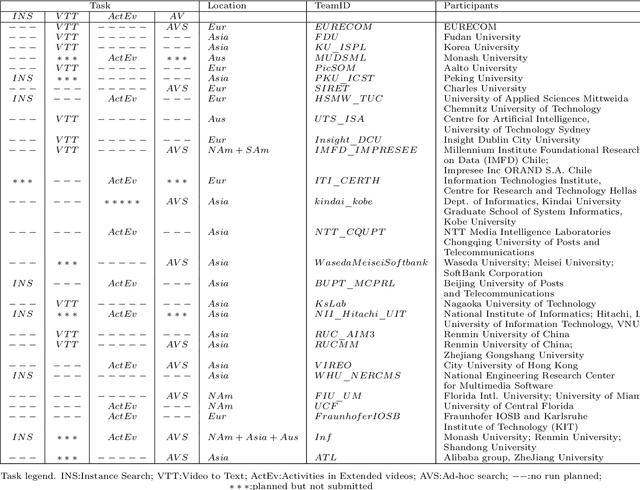
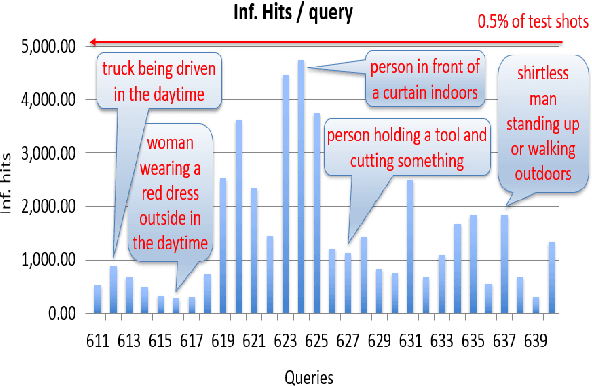
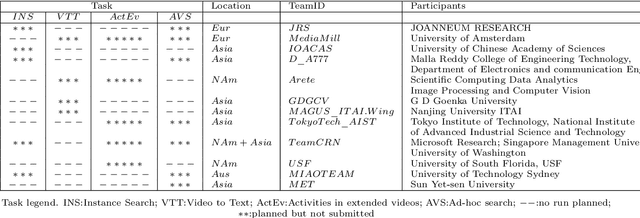
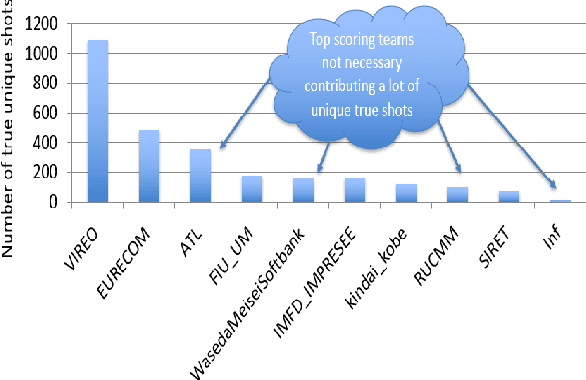
Abstract:The TREC Video Retrieval Evaluation (TRECVID) 2019 was a TREC-style video analysis and retrieval evaluation, the goal of which remains to promote progress in research and development of content-based exploitation and retrieval of information from digital video via open, metrics-based evaluation. Over the last nineteen years this effort has yielded a better understanding of how systems can effectively accomplish such processing and how one can reliably benchmark their performance. TRECVID has been funded by NIST (National Institute of Standards and Technology) and other US government agencies. In addition, many organizations and individuals worldwide contribute significant time and effort. TRECVID 2019 represented a continuation of four tasks from TRECVID 2018. In total, 27 teams from various research organizations worldwide completed one or more of the following four tasks: 1. Ad-hoc Video Search (AVS) 2. Instance Search (INS) 3. Activities in Extended Video (ActEV) 4. Video to Text Description (VTT) This paper is an introduction to the evaluation framework, tasks, data, and measures used in the workshop.
 Add to Chrome
Add to Chrome Add to Firefox
Add to Firefox Add to Edge
Add to Edge